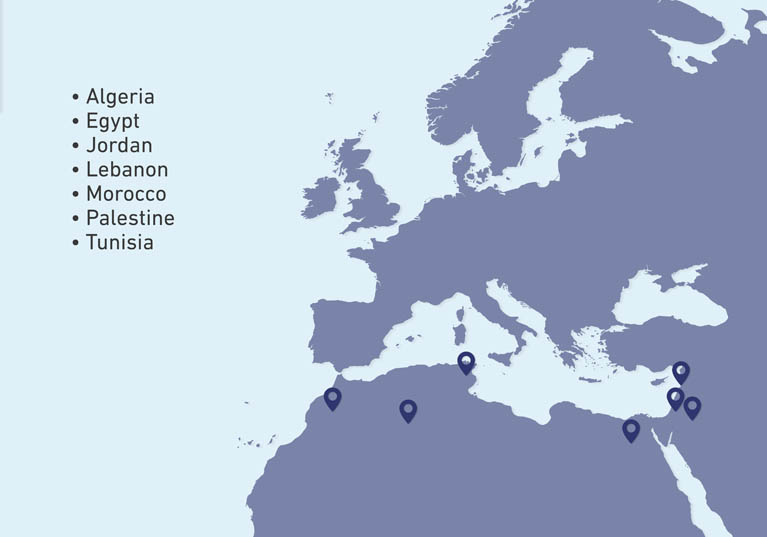
EDILE – Economic Development through Inclusive and Local Empowerment
Context
The Economic Development through Inclusive and Local Empowerment (EDILE) project aimed to improve the quality of investment projects and their local impact, which in the past has not always fulfilled expectation in projects in the Southern Mediterranean, with local economic benefits remaining limited and negative impacts on the environment sometimes underestimated.
The main targets are public and private organisations dealing with investment and economic development: agencies, ministries, business support organisations, finance institutions. EDILE provide them with a set of tools allowing to assess investments projects in terms of economic, social, environmental and governance impacts.
This allows to compare projects to offer advantages to the best performers on the basis of tangible and objective criteria, for example through incentives, technical assistance, financial support, or the awarding of a label. Businesses can also use EDILE to assess their projects and improve their local impacts.
The first phase of the project, implemented in the framework of the ENPI CBC MED programme financed by the European Commission from 2013 to 2017, allowed to develop a methodological guide for project evaluation and a rating method based on pilot implementation in Tunisia and Lebanon. ANIMA now promotes this approach in the Euro-Mediterranean region thanks to events, trainings and webinars.
Location

Key figures
Duration (phase 1+2):
72 months
Countries:
7
Total cost:
€2.9M
Pilot Projects:
17
Financial contribution
€35,000 – Promoter
€1M – ENPI CBC Med Programme
Promoter
The consortium in charge of implementing the EDILE project was led by ANIMA Investment Network, based in Marseille, France. Initiated in 2002 by European and South-Mediterranean investment promotion agencies, the ANIMA Investment Network is a multi-country platform supporting the economic development of the Mediterranean. Its objective is to contribute to a better investment and business climate and to the growth of capital flows into the Mediterranean region.
Beneficiaries
- Public administrators and local authorities
- Investment promotion agencies, local development agencies, SME support agencies
- Civil society
- Private sector
- Financial institutions
Key actions
Supporting enterprises in enhancing the social and economic impact of their investment projects.
Creating a rating tool of socio-economic indicators to measure the inclusiveness of investment projects associated with the EDILE label.
Reinforcing the abilities of public authorities involved in the regulation of investment.
Results
In 2016, the Tunisian Investment Authority defined criteria allowing to size incentives for foreign investment projects based on EDILE rating method.
In 2017, EDILE was included in the Good practices for sustainable development in the Mediterranean promoted by the Mediterranean Commission on Sustainable Development associated with the Mediterranean Action Plan (MAP) of the United Nations Environment Programme (UNEP).
In 2020, the International Trade Centre – ITC, the joint agency of the World Trade Organization and the United Nations, published a case study to promote EDILE as a relevant approach for “Measuring and Improving Impact of Investment in Sustainable Development”.
In 2022, thanks to EBSOMED project, an online tool based on EDILE has been developed. It is intended for economic development organisations willing to assess the local impacts of investments. Based on user feedbacks, this online tool will be promoted as IMPACT RATING (EDILE acronym was considered a bit complex to pronounce in English). ANIMA and Provence Promotion, France’s South Region economic development agency, will launch an Impact Provence Award based on the IMPACT RATING tool to promote investors with the best impacts in 2022
In 2022, ANIMA will develop synergies with ENI CBC MED project Cluster4Green in order to support the use of IMPACT RATING in Tunisia, Egypt, Lebanon and Jordan and to develop a customisable version of IMPACT RATING. This will allow to align criteria selection and “weight” with local or national strategies and priorities of organisations using IMPACT RATING.
